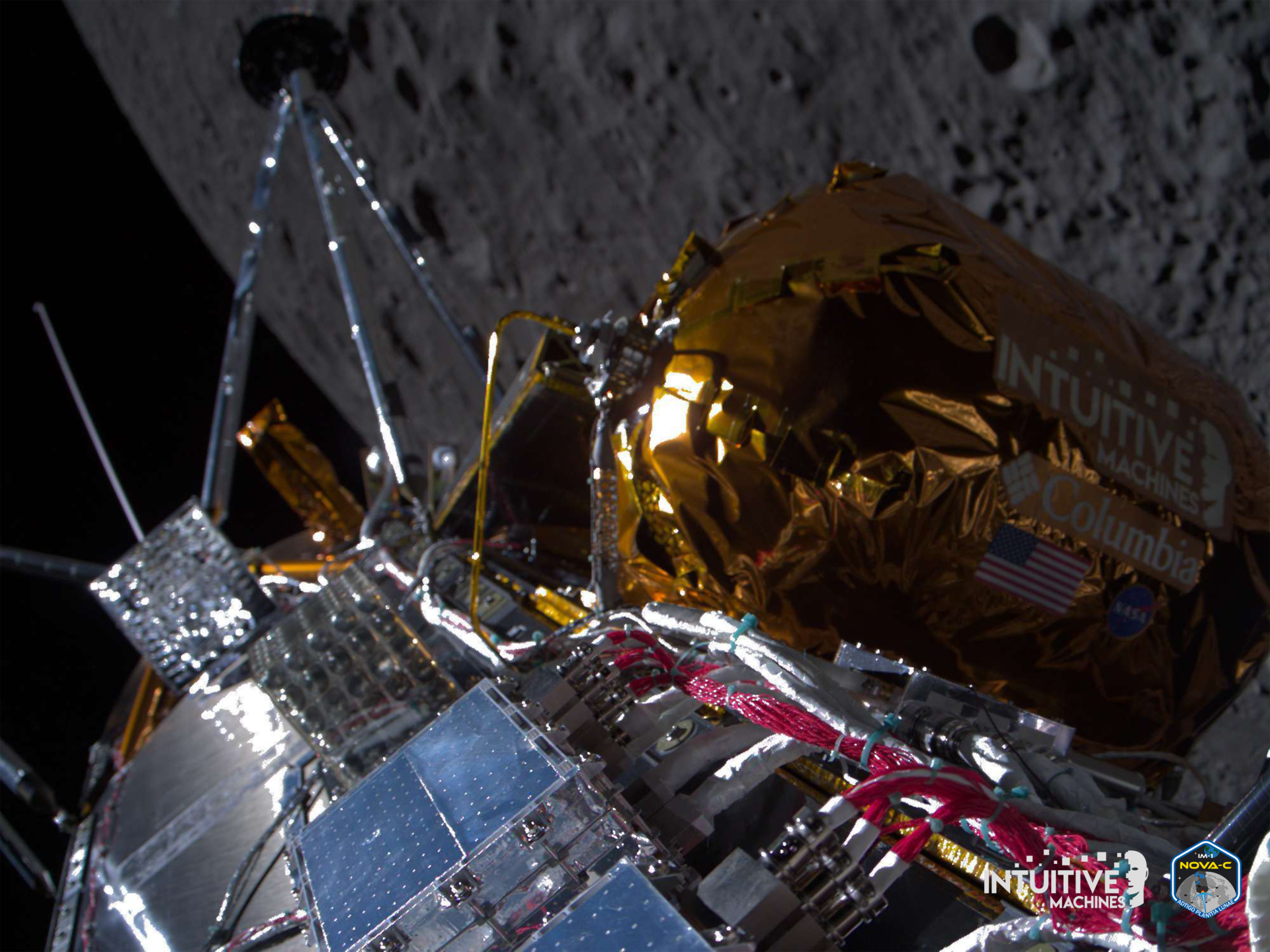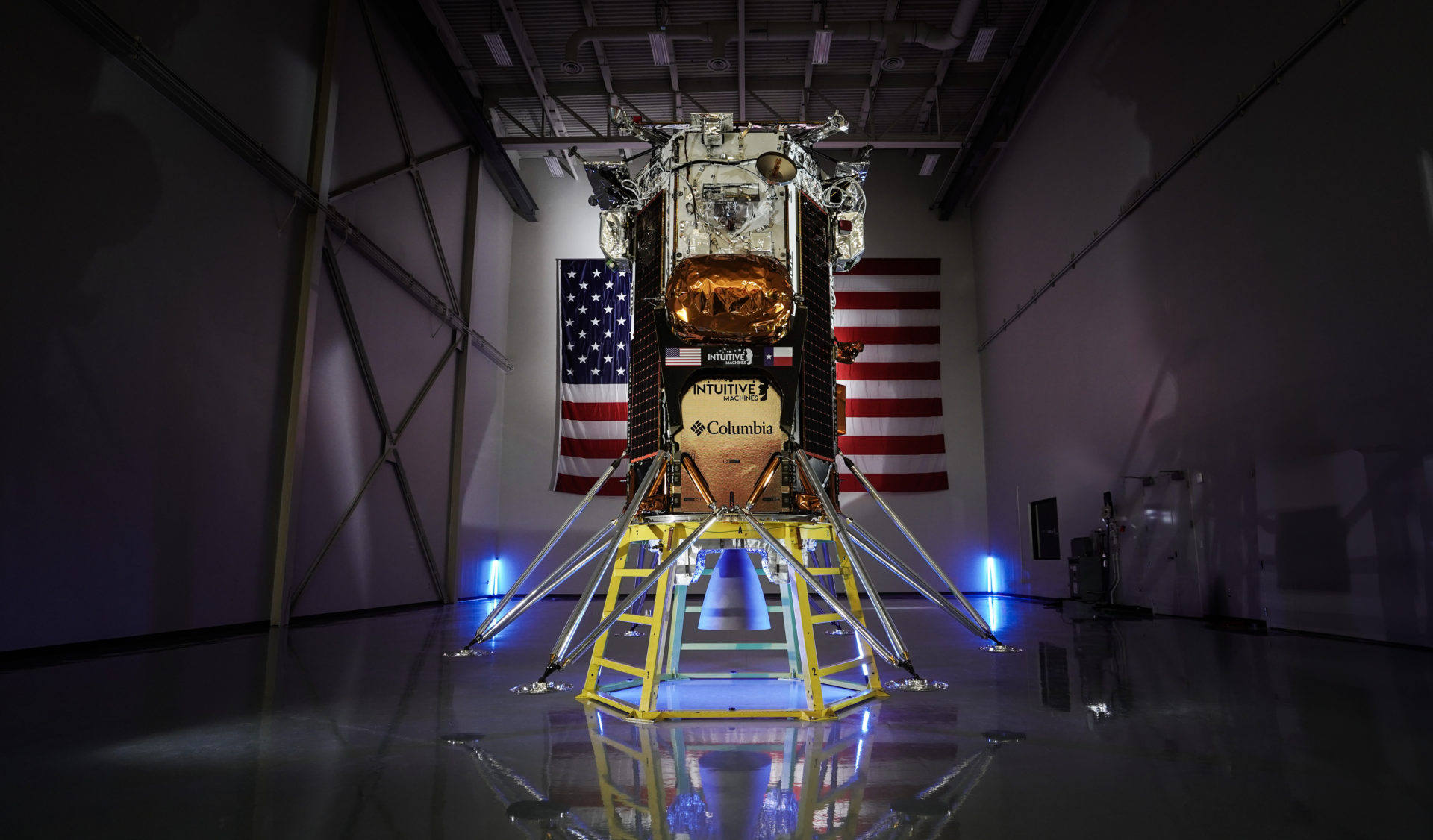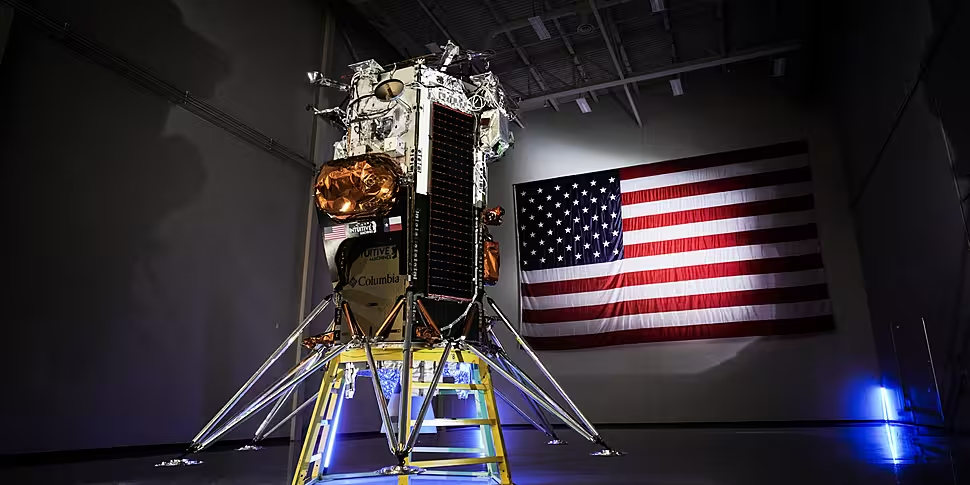The first-ever privately backed mission to the moon has successfully touched down on the lunar surface.
‘Odysseus’ landed on the moon shortly after 11pm Irish time last night – eight days after it began its quarter of a million-mile voyage.
It is the first time a US mission has successfully landed on lunar soil in over half a century.
There was applause and cheers in the Houston control room when the landing was confirmed after an extremely tense few minutes waiting for the lander to emit a signal.
After around 15 minutes the signal finally arrived.
 The Odysseus lander passing over the near side of the Moon following lunar orbit insertion on 21-02-2024. Image: Intuitive Machines
The Odysseus lander passing over the near side of the Moon following lunar orbit insertion on 21-02-2024. Image: Intuitive Machines‘Odysseus’ is owned by Texas-based Intuitive Machines and blasted off from Cape Canaveral atop a rocket made Elon Musk’s SpaceX.
Intuitive CEO Steve Altemus welcomed the landing last night.
“What an outstanding effort,” he said.
“I know this was a nail-biter but we are on the surface and we are transmitting – welcome to the moon.”
 The Odysseus lander seen on Earth before its mission to the moon. Image: Intuitive Machines
The Odysseus lander seen on Earth before its mission to the moon. Image: Intuitive MachinesThe 14-foot-tall carbon fibre and titanium lander descended from a moon-skimming orbit and guided itself to the surface, searching for a relatively flat spot among the cliffs and craters to make its landing near the Moon’s south pole.
The last time a US-made spacecraft landed on the moon, it was carrying Apollo 17 astronauts Gene Cernan and Harrison Schmitt.
The pair remain the last humans to have walked on the moon.
NASA administrator Bill Nelson congratulated the teams involved on the successful mission overnight.
“Congratulations to everyone involved in this great and daring quest at Intuitive Machines, SpaceX and right here at NASA,” he said.
“What a triumph – Odysseus has taken the moon.”
'A giant leap forward'
He called the mission a “triumph” and a “giant leap forward for all of humanity”.
In a televised statement following the successful landing, he said: “Today for the first time in more than half a century, the US has returned to the moon.
“For the first time in the history of humanity, an American company launched and led the voyage up there.
“Today is a day that shows the power and promise of NASA's commercial partnerships.
“Congratulations to everyone involved in this great and daring quest at Intuitive Machines, SpaceX and right here at NASA.”
Artemis
NASA was the mission's main sponsor, paying $118m (€109.05m) to put its experiments on board the lander.
It is seen as part of the Artemis Programme which could eventually see astronauts return to the moon later in the decade.
The space agency has ambitions to make lunar trips a more regular affair and, eventually, build a base on the moon.
Odysseus is also carrying six other payloads from commercial companies.
It has landed closer to the moon's south pole than any other craft before it.
The region has many more craters, cliffs and boulders than the equator, where the Apollo landings were in the 60s and 70s.
Scientists hope to find layers of ice, or perhaps Arctic-style permafrost, from which they can create hydration for astronauts - something which would enable them to stay for prolonged missions.
Main image shows the Odysseus lander passing over the near side of the Moon following lunar orbit insertion on 21-02-2024. Image: Intuitive Machines









